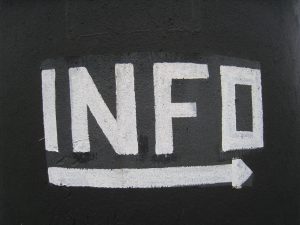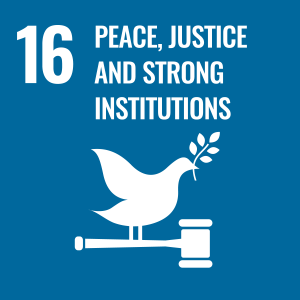My overall take on this blog assignment has been that during the Covid-19 pandemic there has been a backslide globally regarding human rights, democracy, freedom of speech and the right to (correct) information. Access to information was my point of departure and from there I branched out into interconnected issues, in the light of ICT. My main focus has been to give examples of how ICT has been used as a tool.
ICT4D – the semantics
In my intention to seek after examples on how ICT can be used as a tool for development – to become ICT4D, I came across an interesting read by Roberts (2019) where he is delivering his view in the ongoing semantic debate around the terminology of digital development. He argues that the collective term ‘Digital Development’ can be divided into three different parts; Digital in Development, Digital for Development and Development in a digital world. The first one address the use of information and communication technology within the development agencies, as tools for their own work and operations. To collect data, coordinate programs and their own digital infrastructure one might say.
The next one, Digital for Development “refers to the conscious design and application of digital tools explicitly for development outcomes and impact”. Meaning that the specific words for Development gives a promise to deliver a clear connection between the specific digital solution and the outcome. For example, mobile apps.
The third part, Development in a digital world, Roberts (2019) refers to the fact that international development work is operating in a more and more digitalized context. The datafication of the world is on the rise.
So according to Roberts (2019) my approach has been to look at Digital for development. My post on the #shareverify initiative has a very clear message on what it means to accomplish. And also the JournoSOS App for journalists in distress, and the whistleblower app to report suspected corruption.
Access to information – but how?

Access to information and the right to information is key in development and it has an impact on human rights, democracy, freedom of speech, press freedom, equality and citizens daily life. This is how I started my first blog post and I was focusing on an event that took place the same week. It was the very first edition of International Day for Universal Access to Information (IDUAI), a day that was proclaimed at the 74th UN General Assembly in 2019. IDUAI 2020 was focusing on the right to information in times of crisis and also on the advantage of having constitutional, statutory guarantees for public access to information through and beyond the Covid 19 crisis. In a nutshell this initial webinar focused on two things; Access to information and the urge to implement laws to make that happen and how to have an openness in parliaments and meeting requirements from the public. And the other thing discussed was how to safeguard accurate and reliable information and at the same time fight misinformation and even malicious disinformation.
One conclusion from this event was that even if you have the laws it might be a case of bad digital infrastructure, incapacity of record keeping and lack of or poor systems and platforms to actually putting the information out there. It is essential that government institutions have this infrastructure in place and this is described by Mutsvairo et al. (2019) as one of the many challenges that faces journalists, media institutions and researchers in for example the Global south. Journalism does not exist in a vacuum. Journalism’s ability to meaningfully contribute to the overall development of society is dependent on all the other institutions that are central for supporting a democratic political system. Mutsvairo et al., (2019: 48). He emphasises on the importance of data journalism when it comes to investigating journalism regarding corruption and financial crimes Mutsvairo et al., (2019: 36). It is very hard for journalists to retrieve and analyse big data if there is not a good system in place to be able to search for specific information. And as a consequence, it will also affect the quality of information presented to the public, for the citizens to participate in democratic processes. In connection to this Musviro et al. (2019) also brings up the fact that for journalists to be able to dig deep they need access but they also ”need skills to navigate the labyrinthine world of big data” Musviro et al. (2019: 40).This is important to be able to make use of the advantage of big data and make connections between interrelated issues and reveal patterns. So media development also include education in ICT related areas.
This is also an approach by UNDP in their broader efforts to fight corruption. To train journalists, researchers, think tanks etc. how to engage with open public data to be able to use it as a tool to increase transparency and hold governments and also private entities accountable (UNDP 2019: 34-37)
Protectors of democracy
In one of my posts I wrote about the difficult situations for journalists in Zimbabwe and just recently, on November 2nd was the international day of End Impunity for Crimes Against Journalists (#EndImpunityforCrimesAgainstJournalists). Yet another reminder of the importance to protect free media and journalists as they are cornerstones in a democratic society. According to UNESCO (2020) more than 1200 journalists have been killed between 2006 and 2020 worldwide. And 9 out of 10 of the cases remains unsolved. Between 2018 and 2019 most journalists that were killed were operation in countries with no armed conflict.
Without journalists, there is no journalism.
Without journalism, there is no democracy.
Now more than ever, it is time to stand up to #ProtectJournalists.
2 November is International Day to #EndImpunity for Crimes against Journalists.
✊ https://t.co/2fC7of3Wlx ✊ pic.twitter.com/10Y94MAc8W
— UNESCO 🏛️ #Education #Sciences #Culture 🇺🇳 (@UNESCO) November 2, 2020
This pandemic has resulted in that many countries have introduced restrictions to freedom of expression and tightened the democratic space. Free media and journalists are under threat. Not only in these times of Covid 19 but also when covering protests and working on specific assignments like investigating possible corruption.
Corruption stands in the way of development
In my fourth post I focused on corruption since it is a major obstacle to achieve sustainable development and the full realization of human rights. It is essential that a state can mobilize and allocate resources to deliver the public services needed in an equal society. Corruption undermines that. In the United Nations Human Rights Appeal 2020: 24-25) it states that they will support countries in taking a more holistic victim-focused and rights-based approach in their anti-corruption strategies. “By putting people – the rights holders, and States – the duty bearers, at the centre, the human rights-based approach to anti-corruption has the potential to increase the effectiveness of strategies.”. This approach sounds very promising and hopefully it will bring more effective interventions that will indeed make a difference to the individual citizens on a broad level.
UN Human Rights also states that “Efforts to stop corruption and realize human rights are mutually reinforcing. Both demand accountability, participation and transparency”. And that is how it is indeed connected to access to information, the right to (correct) information and the important role of the free media in fighting corruption. And in some ways, this closes the circle of topics I started on 6 weeks ago. Access to information – a human right.
The Sustainable Development Goals

To further take this issue of the right to information into context it is almost inevitable (as a comdev student) not to address the Sustainable Development Goals, and in this case number 16 – Peace, Justice and Strong Institutions. Or more to the point 16.10: Ensure public access to information and protect fundamental freedoms, in accordance with national legislation and international agreement
Apart from the obvious reason to connect to the SDG of 16.10 I also think that it is very valuable to reflect on the right to information as a prerequisite to be able to achieve all the sustainable development goals all together. Access to information is empowering and knowledge brings participation and the ability to make informed decisions. Communities can demand their rights and hold government accountable on development issues.
UNESCO puts it like this ”Access to information is not only a basic human right, but also an important tool for promoting the rule of law and ensuring other rights as well as goals under the SDGs. It is therefore an enabler for sustainable development in areas such as health, environment, addressing poverty and fighting corruption” (UNESCO 2019).
I think this reflects well how I started off this assignment, that ”access to information and the right to information is key in development and it has an impact on human rights, democracy, freedom of speech, press freedom, equality and citizens daily life”.
Heeks (2017: 239) writes about development as increased freedom and that it is about that a person is free to try to achieve any goals that are important to him or her. He presents freedom as divided into five areas:
- Economic: for example, wealth is a freedom; employment is a freedom.
- Political: for example, democratic participation or freedom of speech.
- Social: such as literacy or computer literacy or knowledge.
- Informational: interpreted as the ability to access information.
- Security: freedom from crime and violence, misery, starvation and death.
Looking at these five areas it is easy to draw a parallell to the Sustainable Development Goals and the connection to human rights. And one of them is informational freedom and the ability to access information. If you don’t know your rights how can you claim them and fight for them? #TheRightToInfo.
Blogging as an ICT tool
Denskus (2019) has written about how blogging can be a tool to communicate development in a different way that also diversify the discussion around development issues in a more informal way. In his own blog (Aidnography) he aims to provide a weekly link review to highlight interesting and relevant content and at the same time provide decolonised resources and give room for a spectrum of voices. When it comes to blogging as a form it is also very direct in the sense that you can provide links and other resources for instant access (if they are digital of course). And as Rettberg (2014: 2) points out, blogs are today part of a whole new digital ecosystem where social media can work as a springboard for the blog when blog posts are shared and even discussed on Twitter and Facebook. With is also a way to find new audiences than perhaps the expected one. And images, infographics, video etc are becoming more central in the content.
Personally, I think this assignment has been a challenge, but at the same time very rewarding and indeed a learning process. Both on the technological side when creating a blog and what to think about, but also to find interesting and relevant content. It has also been fun to write with a more informal approach for the most part. In the end it has also been an excellent opportunity to learn from my fellow students. Reading different blogs have given many interesting insights, inspiring reads and food for thought.
References
Denskus, T. 2019: Blogging and curating content as strategies to diversify discussions and communicate development differently, Aidnography, 17 December.
Heeks, R. 2017: Information and Communication Technology for Development (ICT4D) Abingdon: Routledge.
Mutsvairo, B., Bebawi, S., Borges-Rey, E. 2019: Data Journalism in the Global South. Cham: Palgrave.
Rettberg, J. W. 2014: Blogging. Oxford: Polity.
Roberts, T. 2019: Digital Development: what’s in a name? Appropriating Technology, 9 August.
United Nations Human Rights Appeal, 2020
UNESCO, 2020 Director-General Reporton the Safety of Journalists and the Danger of Impunity 2020. Retrived from https://en.unesco.org/themes/safety-journalists/dgreport
United Nations Development Programme (UNDP) 2019: UNDP’s Engagement with the Media for Governance, Sustainable Development and Peace. Oslo: UNDP Governance Centre.
Web site
https://www.un.org/sustainabledevelopment/peace-justice/
Article
https://en.unesco.org/news/access-information-gets-upgrade-sdg-indicators-framework

